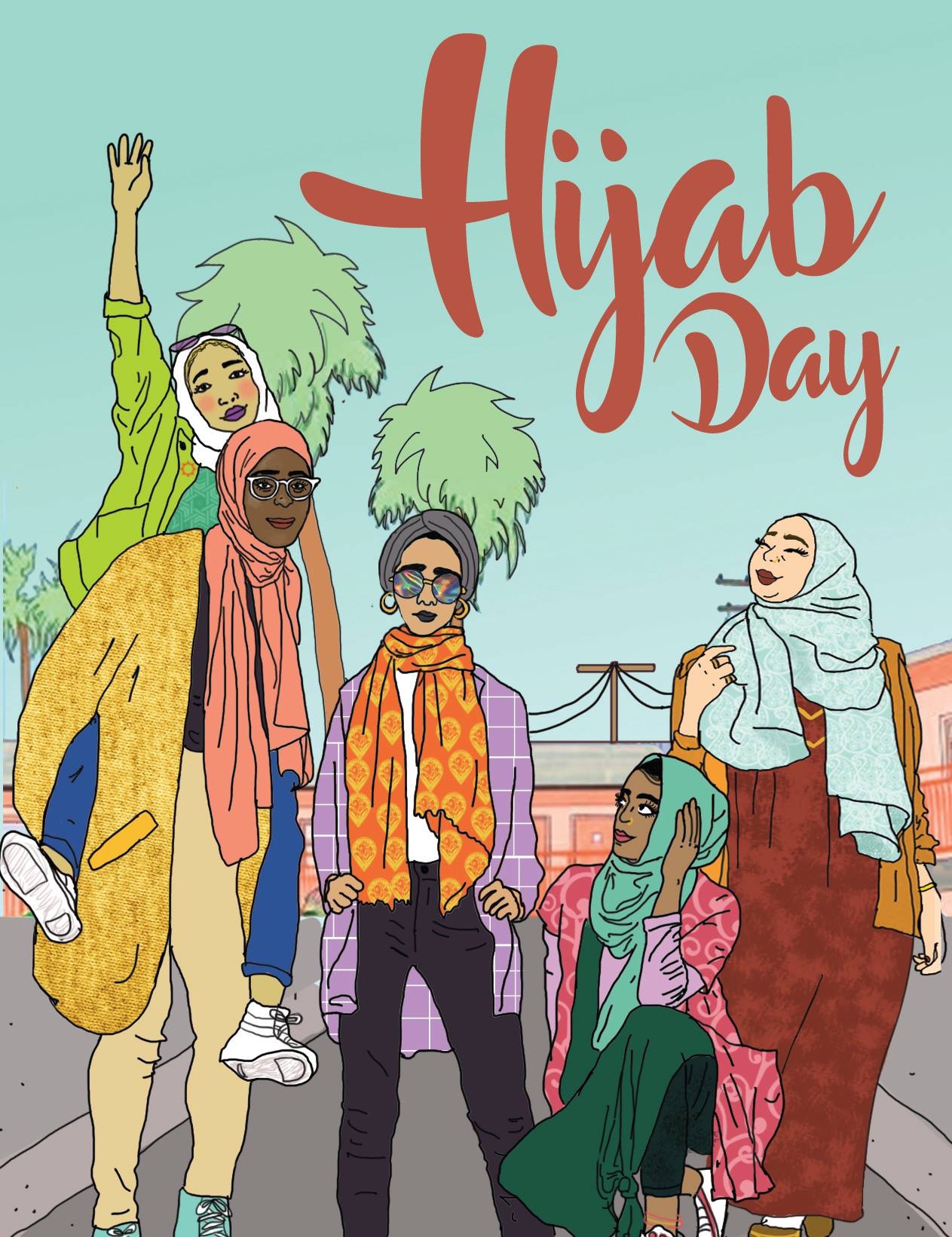UCLA Hijab Day

Image by Hajar Azzam
On March 2, UCLA’s Muslim Student Association (MSA) hosted Hijab Day. Starting at 8 a.m., MSA members on Bruinwalk offered headscarves and pins to passersby. Those who chose to receive headscarves had them styled by members and were encouraged to wear them throughout the day. The scarves were provided by Austere Attire, an LA based online hijab store.
“For Hijab Day we just want people to stand in solidarity with our Muslim sisters,” said Nadiya Priasti, a member of MSA.
“With the whole political climate it’s important for us to be united…We’re just normal people living normal lives,” said Priasti. “Hijab is not a form of oppression – it’s actually quite liberating in my opinion.”
“The happiness I get from this, I did not expect,” said Priasti.
Hajar Azzam, who designed the art for Hijab Day, said she hopes participants understand what it’s like to wear a hijab for a day and gain a deeper understanding of what hijab means.
“It’s not a sign of oppression, which most people think it is. I hope by having this experience people can learn that,” said Azzam.
At the end of the day, the MSA hosted a reflection. Those who participated in Hijab Day were asked how their perceptions changed and what their experience was like wearing the hijab for a day. Participants were asked to reflect on whether they felt self-conscious or if they had been treated differently than usual. Some participants noted they were being stared at or mentioned feeling frightened of public persecution. Other participants felt a sense of community in seeing other women in hijab. Overall, multiple participants said they felt humbled by the experience.
The reflection also featured spoken word by Dania Ayah Alkhouli and a panel of speakers including Noor Bala and Aisha Sleiman. The speakers discussed being Muslim in America, wearing a hijab in America, and their hopes for a more accepting future.
In today’s political climate, events like Hijab Day are more important than ever. When the words of the President of the United States encourage fear and hatred towards one religious group, it is important for those outside of the group to step forward and practice empathy. Islamophobic hate crimes are five times more common today than they were prior to 9/11. We must educate ourselves as allies, educate others on Islam and Islamophobia, and stand together as one.




